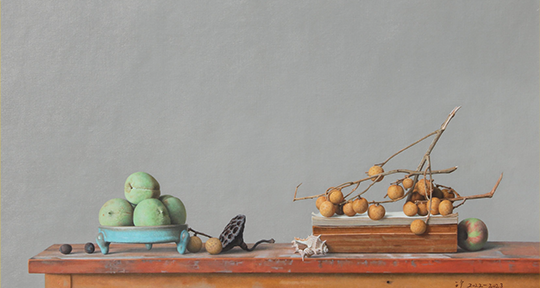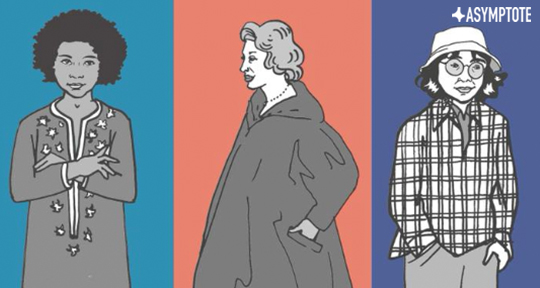The PEN/Heim Translation Grant is one of the most reliable indicators as to which texts will come to be considered vital in the English-language literary landscape, with past grantees including George Szirtes translating the Hungarian giant of postmodernism, László Krasznahorkai; Daniel Borzutsky translating the Chilean revolutionary poet, Raúl Zurita, Jennifer Croft translating Polish Nobel Laureate Olga Tokarczuk, and Anton Hur translating the celebrated South Korean genre-bender, Bora Chung. The aim of the grant is to support translators during their vital and difficult work of working on a text, and as a result, the texts that come to English-language readers by way of this gift are often exemplary examples of not only the writers’ intelligence, imagination, and effort—but equally importantly, the translator’s.
In this three-part series, Asymptote has asked the 2023 PEN/Heim grantees to talk about their work in progress; their responses, brimming with excitement, conviction, and connection, are a testament to how much translators put themselves into their labor. Through the varied approaches and languages, they share the important commonality of surety: that the work they’ve been entrusted with has an immense potential to illuminate our reality, enlarge our world, and enrich our experiences of literature.
Here, Mark Tardi ruminates on the importance of discipline; Richard Prins talks about following instinct; and Caroline Froh opens up about the physical effect that reading has on us.
Mark Tardi on Olga Hund:
In The Poethical Wager, Joan Retallack argues intelligently for the creative embrace of life’s unexpected swerves, the “unsettling transfiguration of once-familiar terrain [which tends] to produce disorientation, even estrangement, by radically altering geometries of attention.” Olga Hund’s remarkable and award-winning debut novel, Psy ras drobnych (Dogs of Smaller Breeds) was such a swerve for me, thanks to James Guerin and Klaudia Cierluk, editors at Berlin Quarterly, who commissioned me to translate an excerpt. Hund’s writing pulled me in immediately, and I felt sure that English-speaking readers would connect with the book much like I had.
Dogs of Smaller Breeds takes place in an in-patient women’s psychiatric ward in southern Poland and via the narrator—who may or may not be the pseudonymous Hund herself—we’re offered short vignettes, unabashed and unapologetic glimpses into the lives of women who would be otherwise largely invisible and neglected. In one poignant and heartbreaking segment, Hund’s narrator observes that:
If it weren’t for papers: documents from orphanages, correctional institutions and prisons, hospital records, blue cards and prescriptions; and if it weren’t for their various small objects: a spoon from the canteen, a prayer book, a photo of two Yorkies torn out of a newspaper, a cassette with the inscription “Mother” and the chaplet of Our Lady recorded on it, a tote bag washed and folded evenly—no one would remember that these women, who are here today, were alive at all.
Hund doesn’t attempt to construct a comprehensive picture, which would reveal some neatly packaged truth. This is one of the most compelling aspects of the book—the devastating intimacy and scaled back narratives propel the story forward, à la Fleur Jaeggy or Jenny Offill. For instance, in one scene, the narrator recounts how the women are not so crazy as to have forgotten the abuses they’ve suffered, most often from family and partners. Hund uses a neologism, “męże-węże,” which literally would be something like “husband-snakes,” but the term rhymes perfectly while simultaneously magnifying menace. I rendered this as “spouse-louse,” which loses some of the historical connotations of snakes and viperous dangers, but the parasitical qualities of lice—surviving on the blood of another—echoes other aspects in the novel. READ MORE…






